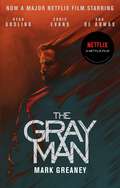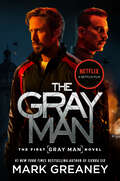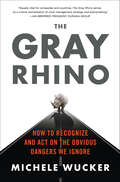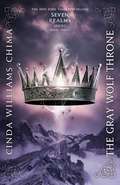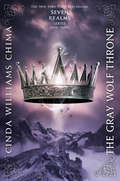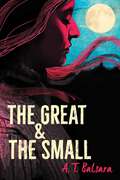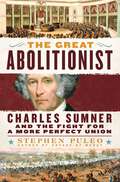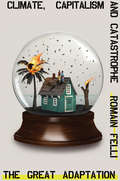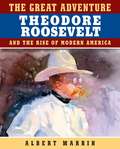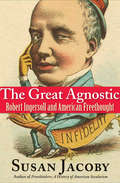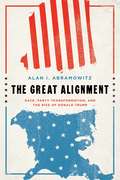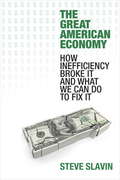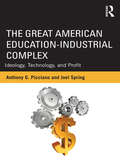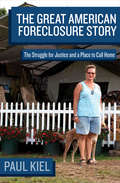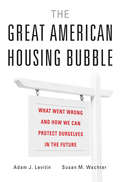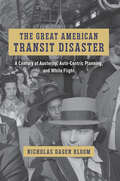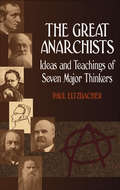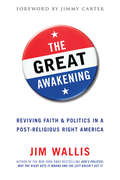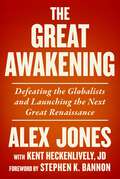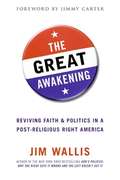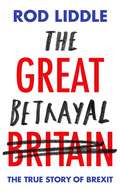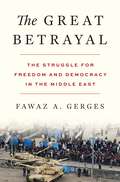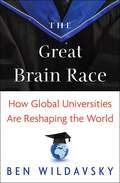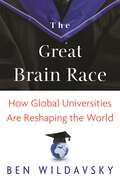- Table View
- List View
The Gray Man (Gray Man #1)
by Mark Greaney'Hard, fast, and unflinching-exactly what a thriller should be.' Lee ChildThe first in the Court Gentry all-action thriller series, from Tom Clancy's co-writer Mark Greaney.To those who lurk in the shadows, he's known as the Gray Man. He is a legend in the covert realm, moving silently from job to job, accomplishing the impossible and then fading away. And he always hits his target. But there are forces more lethal than Gentry in the world. Forces like money. And power. And there are men who hold these as the only currency worth fighting for. In their eyes, Gentry has just outlived his usefulness.But Court Gentry is going to prove that, for him, there's no grey area between killing for a living and killing to stay alive...***********************'Bourne for the new millenium' New York Times bestselling author James Rollins'A high-octane thriller that doesn't pause for more than a second for all of its 464 pages...For readers looking for a thriller where the action comes fast and furious, this is the ticket.' Chicago Sun-Times'Take fictional spy Jason Bourne, pump him up with Red Bull and meth, shake vigorously-and you've got the recipe for Court Gentry.' The Memphis Commercial Appeal'From the opening pages, the bullets fly and the bodies pile up. Through the carnage, Gentry remains an intriguing protagonist with his own moral code.' Booklist
The Gray Man (Gray Man #1)
by Mark GreaneyTHE FIRST GRAY MAN NOVEL FROM #1 NEW YORK TIMES BESTSELLING AUTHOR MARK GREANEY—Soon to Be a Netflix Original Film Starring Ryan Gosling and Chris Evans&“Hard, fast, and unflinching—exactly what a thriller should be.&”—Lee ChildTo those who lurk in the shadows, he&’s known as the Gray Man. He is a legend in the covert realm, moving silently from job to job, accomplishing the impossible and then fading away. And he always hits his target. Always.But there are forces more lethal than Gentry in the world. Forces like money. And power. And there are men who hold these as the only currency worth fighting for. And in their eyes, Gentry has just outlived his usefulness. But Court Gentry is going to prove that, for him, there&’s no gray area between killing for a living and killing to stay alive…
The Gray Rhino: How to Recognize and Act on the Obvious Dangers We Ignore
by Michele WuckerThe #1 English-language bestseller in China--the book that is shaping China's planning and policy for the future.A "gray rhino" is a highly probable, high impact yet all-too-often neglected threat: kin to both the elephant in the room and the improbable and unforeseeable black swan. Gray rhinos are not random surprises, but occur after a series of warnings and visible evidence. The bursting of the housing bubble in 2008, the devastating aftermath of Hurricane Katrina and other natural disasters, the new digital technologies that upended the media world, the fall of the Soviet Union...all were evident well in advance.Why do leaders and decision makers keep failing to address obvious dangers before they spiral out of control? Drawing on her extensive background in policy formation and crisis management, as well as in-depth interviews with leaders from around the world, Michele Wucker shows in The Gray Rhino how to recognize and strategically counter looming high impact threats. Filled with persuasive stories, real-world examples, and practical advice, The Gray Rhino is essential reading for managers, investors, planners, policy makers, and anyone who wants to understand how to profit by avoiding getting trampled.
The Gray Wolf Throne (Seven Realms #3)
by Cinda Williams ChimaHan Alister thought he had already lost everyone he loved. But when he finds his friend Rebecca Morley near death in the Spirit Mountains, Han knows that nothing matters more than saving her. The costs of his efforts are steep, but nothing can prepare him for what he soon discovers: the beautiful, mysterious girl he knew as Rebecca is none other than Raisa ana'Marianna, heir to the Queendom of the Fells. Han is hurt and betrayed. He knows he has no future with a blueblood. And, as far as he's concerned, the princess's family as good as killed his own mother and sister. But if Han is to fulfill his end of an old bargain, he must do everything in his power to see Raisa crowned queen. <P> Meanwhile, some people will stop at nothing to prevent Raisa from ascending. With each attempt on her life, she wonders how long it will be before her enemies succeed. Her heart tells her that the thief-turned-wizard Han Alister can be trusted. She wants to believe it-he's saved her life more than once. But with danger coming at her from every direction, Raisa can only rely on her wits and her iron-hard will to survive-and even that might not be enough.<P> The Gray Wolf Throne is an epic tale of fierce loyalty, unbearable sacrifice, and the heartless hand of fate.
The Gray Wolf Throne: Collecting The Demon King, The Exiled Queen, The Gray Wolf Throne, And The Crimson Crown (A Seven Realms Novel #3)
by Cinda Williams ChimaHan Alister thought he had already lost everyone he loved. But when he finds his friend Rebecca Morley near death in the Spirit Mountains, Han knows that nothing matters more than saving her. The costs of his efforts are steep, but nothing can prepare him for what he soon discovers: the beautiful, mysterious girl he knew as Rebecca is none other than Raisa ana'Marianna, heir to the Queendom of the Fells. Han is hurt and betrayed.
The Great & the Small
by A.T. BalsaraListed in 18 Canadian young adult books to check out in fall 2024 - CBC Books Fall 2024Ananda is a troubled teen who feels like a misfit at home and at her new school, and her unusual ability to connect with animals makes her feel like even more of an outsider. Still raw from the death of her grandmother, Ananda's dreams are haunted by a long-buried memory that causes her to push people away.Fin is a Tunnel rat who lives in the passages beneath the city, in the dark places humans overlook or despise. Orphaned as a pup, he is the nephew of the Tunnel's charismatic leader, the Beloved Chairman, and is willing to do anything to please his uncle, including becoming his lead henchman.The worlds of humans and rats suddenly collide when Ananda protects Fin during a chance encounter in the market. Neither can foresee how their lives will forever be inextricably linked, but as the Chairman launches a plague war against the humans, both Fin and Ananda wrestle with secrets so terrible that they threaten their very existence.Told as mirroring narratives that reverberate with the effects of buried trauma, and informed by historical accounts of plague and dictatorship, this stunning tale examines what it takes to grasp for light in the darkness and survive the threats both beyond us and within us.
The Great Abolitionist: Charles Sumner and the Fight for a More Perfect Union
by Stephen PuleoThe groundbreaking biography of a forgotten civil rights hero.In the tempestuous mid-19th century, as slavery consumed Congressional debate and America careened toward civil war and split apart–when the very future of the nation hung in the balance–Charles Sumner’s voice rang strongest, bravest, and most unwavering. Where others preached compromise and moderation, he denounced slavery’s evils to all who would listen and demanded that it be wiped out of existence. More than any other person of his era, he blazed the trail on the country’s long, uneven, and ongoing journey toward realizing its full promise to become a more perfect union.Before and during the Civil War, at great personal sacrifice, Sumner was the conscience of the North and the most influential politician fighting for abolition. Throughout Reconstruction, no one championed the rights of emancipated people more than he did. Through the force of his words and his will, he moved America toward the twin goals of abolitionism and equal rights, which he fought for literally until the day he died. He laid the cornerstone arguments that civil rights advocates would build upon over the next century as the country strove to achieve equality among the races.The Great Abolitionist is the first major biography of Charles Sumner to be published in over 50 years. Acclaimed historian Stephen Puleo relates the story of one of the most influential political figures in American history with evocative and accessible prose, transporting readers back to an era when our leaders exhibited true courage and authenticity in the face of unprecedented challenges.
The Great Adaptation: Climate, Capitalism and Catastrophe
by Romain FelliWhen capitalism doesn't fight climate change but rather tries to make a buck out of itThe Great Adaptation tells the story of how scientists, governments and corporations have tried to deal with the challenge that climate change poses to capitalism by promoting adaptation to the consequences of climate change, rather than combating its causes. From the 1970s neoliberal economists and ideologues have used climate change as an argument for creating more "flexibility" in society, that is for promoting more market-based solutions to environmental and social questions. The book unveils the political economy of this potent movement, whereby some powerful actors are thriving in the face of dangerous climate change and may even make a profit out of it.
The Great Adventure: Theodore Roosevelt and the Rise of Modern America
by Albert MarrinWe knew toil and hardship and hunger and thirst ... but we felt the hardy life in our veins, and ours was the glory of work and the joy of living. -Theodore Roosevelt. Theodore Roosevelt is one of America's liveliest and most influential figures. He was a scholar, cowboy, war hero, explorer, and a brilliant politician. As president, Roosevelt's far-reaching policies abroad and at home forever changed both our nation's place in the world and the life of every modern American. Fascinating details and an intimate, fast-paced narrative explore the heroic life and complex world of an American icon.
The Great Agnostic: Robert Ingersoll and American Freethought
by Susan Jacoby&“Jacoby writes with wit and vigor, affectionately resurrecting a man whose life and work are due for reconsideration&” (The Boston Globe). During the Gilded Age, which saw the dawn of America&’s enduring culture wars, Robert Green Ingersoll was known as &“the Great Agnostic.&” The nation&’s most famous orator, he raised his voice on behalf of Enlightenment reason, secularism, and the separation of church and state with a power unmatched since America&’s revolutionary generation. When he died in 1899, even his religious enemies acknowledged that he might have aspired to the US presidency had he been willing to mask his opposition to religion. To the question that retains its controversial power today—was the United States founded as a Christian nation?—Ingersoll answered an emphatic no. In this provocative biography, Susan Jacoby, author of Freethinkers: A History of American Secularism, restores Ingersoll to his rightful place in an American intellectual tradition extending from Thomas Jefferson and Thomas Paine to the current generation of &“new atheists.&” Jacoby illuminates the ways in which America&’s often-denigrated and forgotten secular history encompasses issues, ranging from women&’s rights to evolution, as potent and divisive today as they were in Ingersoll&’s time. Ingersoll emerges in this portrait as an indispensable public figure who devoted his life to that greatest secular idea of all—liberty of conscience belonging to the religious and nonreligious alike. &“Jacoby&’s goal of elucidating the life and work of Robert Ingersoll is admirably accomplished. She offers a host of well-chosen quotations from his work, and she deftly displays the effect he had on others. For instance: after a young Eugene V. Debs heard Ingersoll talk, Debs accompanied him to the train station and then—just so he could continue the conversation—bought himself a ticket and rode all the way from Terre Haute to Cincinnati. Readers today may well find Ingersoll&’s company equally entrancing.&” —Jennifer Michael Hecht, The New York Times Book Review
The Great Alignment: Race, Party Transformation, and the Rise of Donald Trump
by Alan I. AbramowitzAlan I. Abramowitz has emerged as a leading spokesman for the view that our current political divide is not confined to a small group of elites and activists but a key feature of the American social and cultural landscape. The polarization of the political and media elites, he argues, arose and persists because it accurately reflects the state of American society. Here, he goes further: the polarization is unique in modern U.S. history. Today’s party divide reflects an unprecedented alignment of many different divides: racial and ethnic, religious, ideological, and geographic. Abramowitz shows how the partisan alignment arose out of the breakup of the old New Deal coalition; introduces the most important difference between our current era and past eras, the rise of “negative partisanship”; explains how this phenomenon paved the way for the Trump presidency; and examines why our polarization could even grow deeper. This statistically based analysis shows that racial anxiety is by far a better predictor of support for Donald Trump than any other factor, including economic discontent.
The Great American Economy: How Inefficiency Broke It and What We Can Do to Fix It
by Steve SlavinMany Americans feel that the economy is no longer working for them and that "the American Dream" has become a sham. This book explains the underlying reasons for this gloomy outlook and lays out a clear plan for making the American economy work for everyone, not just the top 1 percent. The heart of the problem, says economist Steve Slavin, is gross inefficiency. Since the end of World War II, America has been wasting vast amounts of its resources. As examples he cites the following key sectors: • Healthcare--we spend nearly twice as much as other industrialized nations but achieve no better results; • Education--just half of our eighteen-year-olds can function at an eighth-grade level, while many European and Asian countries do far better educating their young people; • Transportation--by relying on cars instead of mass transit, we spend much more than comparable nations; • The military--several decades after the Cold War our military budget continues to be almost 40 percent of the world's total military spending, while few politicians ever question the necessity for such massive outlays. In these areas and other sectors of the economy, Slavin proposes sweeping changes to eliminate inefficiency. These would include a restructuring of our healthcare system to make it affordable for all, a major push toward public transportation, increased emphasis on quality results from our education system, ways to eliminate waste throughout our vast military-industrial complex, and a renewed emphasis on manufacturing. Refreshingly clear and readable, The Great American Economy will appeal to readers who want to learn what went wrong with our economy and how to fix it.
The Great American Education-Industrial Complex: Ideology, Technology, and Profit (Sociocultural, Political, and Historical Studies in Education)
by Joel Spring Anthony G. PiccianoThe Great American Education-Industrial Complex examines the structure and nature of national networks and enterprises that seek to influence public education policy in accord with their own goals and objectives. In the past twenty years, significant changes have taken place in the way various interest groups seek to influence policies and practices in public education in the United States. No longer left to the experience and knowledge of educators, American education has become as much the domain of private organizations, corporate entities, and political agents who see it as a market for their ideas, technologies, and ultimately profits. Piccciano and Spring posit that educational technology is the vehicle whereby these separate movements, organizations, and individuals have become integrated in a powerful common entity, and detail how the educational-industrial complex has grown and strengthened its position of influence. This timely, carefully documented, well argued book brings together Picciano’s perspective and expertise in the field of technology and policy issues and Spring’s in the history and politics of education in a unique critical analysis of the education-industrial complex and its implications for the future.
The Great American Foreclosure Story
by Cora Currier Olga Pierce Paul KielProPublica's mesmerizing and groundbreaking look at the national housing crisis, told through the lens of one woman whose story came to exemplify itSheila Ramos's story mirrors the lives of millions of Americans who have lost their homes since the beginning of the housing crisis in 2007. The Great American Foreclosure Story details with clarity and empathy the road that led Ramos and so many like her toward financial ruin. Once the owner of a small business and a home, Ramos fell on hard times. Predatory lending and denied loan-modification applications eventually sent her and her three grandchildren packing, leaving behind their house in Florida and winding up in a tent outside of Ramos's faraway hometown. Alongside Ramos's story are additional investigations by ProPublica reporter Paul Kiel and his colleagues Olga Pierce and Cora Currier documenting the systematic failures at banks, mortgage servicers, and government watchdogs that have exacerbated the country's most severe foreclosure crisis since the Great Depression. Drawing from whistleblower testimonies, extensive homeowner databases, and a trove of underlying data, The Great American Foreclosure Story is a comprehensive and unrivaled look at the housing crisis, and its continuing human toll.
The Great American Housing Bubble: What Went Wrong and How We Can Protect Ourselves in the Future
by Susan M. Wachter Adam J. LevitinThe definitive account of the housing bubble that caused the Great Recession—and earned Wall Street fantastic profits. The American housing bubble of the 2000s caused the worst global financial crisis since the Great Depression. In this definitive account, Adam Levitin and Susan Wachter pinpoint its source: the shift in mortgage financing from securitization by Fannie Mae and Freddie Mac to “private-label securitization” by Wall Street banks. This change set off a race to the bottom in mortgage underwriting standards, as banks competed in laxity to gain market share. The Great American Housing Bubble tells the story of the transformation of mortgage lending from a dysfunctional, local affair, featuring short-term, interest-only “bullet” loans, to a robust, national market based around the thirty-year fixed-rate mortgage, a uniquely American innovation that served as the foundation for the middle class. Levitin and Wachter show how Fannie and Freddie’s market power kept risk in check until 2003, when mortgage financing shifted sharply to private-label securitization, as lenders looked for a way to sustain lending volume following an unprecedented refinancing wave. Private-label securitization brought a return of bullet loans, which had lower initial payments—enabling borrowers to borrow more—but much greater back-loaded risks. These loans produced a vast oversupply of underpriced mortgage finance that drove up home prices unsustainably. When the bubble burst, it set off a destructive downward spiral of home prices and foreclosures. Levitin and Wachter propose a rebuild of the housing finance system that ensures the widespread availability of the thirty-year fixed-rate mortgage, while preventing underwriting competition and shifting risk away from the public to private investors.
The Great American Transit Disaster: A Century of Austerity, Auto-Centric Planning, and White Flight (Historical Studies Of Urban America Ser.)
by Nicholas Dagen BloomA potent re-examination of America’s history of public disinvestment in mass transit.“[An] extensively researched and expertly argued exploration of the demise of urban public transit in the United States. . . . Layered and multifaceted.” ―Pacific Historical ReviewMany a scholar and policy analyst has lamented American dependence on cars and the corresponding lack of federal investment in public transportation throughout the latter decades of the twentieth century. But as Nicholas Dagen Bloom shows in The Great American Transit Disaster, our transit networks are so bad for a very simple reason: we wanted it this way.Focusing on Baltimore, Atlanta, Chicago, Detroit, Boston, and San Francisco, Bloom provides overwhelming evidence that transit disinvestment was a choice rather than destiny. He pinpoints three major factors that led to the decline of public transit in the United States: municipal austerity policies that denied most transit agencies the funding to sustain high-quality service; the encouragement of auto-centric planning; and white flight from dense city centers to far-flung suburbs. As Bloom makes clear, these local public policy decisions were not the product of a nefarious auto industry or any other grand conspiracy—all were widely supported by voters, who effectively shut out options for transit-friendly futures. With this book, Bloom seeks not only to dispel our accepted transit myths but hopefully to lay new tracks for today’s conversations about public transportation funding.“In this excellent socioeconomic history, Bloom offers a comprehensive and thought-provoking account of the rise and fall of U.S. mass transit, skillfully assessing successes and stumbles so that we may learn from them and correct course.” —Booklist“A powerful introduction for urban scholars, practitioners, and students interested in American public transit policy.” ―Journal of Urban Affairs“The book’s greatest strength is its hard look at how racism helped ruin U.S. transit.” ―Newcity
The Great Anarchists: Ideas and Teachings of Seven Major Thinkers
by Paul EltzbacherThis classic comparative study examines the thoughts of seven major writers on the subject of anarchy, using their own words to define the concept of anarchism, with subsidiary investigations of their ideology on the subjects of law, the state, and property. Three-quarters of this book consists of classified quotations from the seven writers — Godwin, Proudhon, Stirner, Bakunin, Kropotkin, Tucker, and Tolstoy; the author’s incisive commentary on each forms the balance of the text.An excellent introduction to anarchist theory and a convenient reference, this volume features a chronological presentation that clearly illustrates the theory’s historical development. The author selects the most important aspects of doctrine and matches them with revealing quotations. His choice of apt illustrations makes this compilation consistently interesting and enlightening, leaving readers with vivid and definite impressions of anarchistic teachings.
The Great Awakening
by Jim WallisNow in paperback: the bestselling author of God's Politics revives our hope in a politics that reflects our highest common values and offers a roadmap for solving our biggest social problems.
The Great Awakening: Defeating the Globalists and Launching the Next Great Renaissance
by Kent Heckenlively Alex JonesIn The Great Awakening: Defeating the Globalists and Launching the Next Great Renaissance, the most persecuted man on Earth, Alex Jones, gives you the good news about the failing plans of the globalists to control humanity. The expression &“Get woke, go broke&” has entered the common lexicon as we&’ve seen company after company invoke the false gods of diversity, equity, and inclusion to their financial demise. But this surface discussion masks a much darker truth. What we are witnessing is nothing less than the failed plans of social Darwinists to capture free market capitalism and turn it toward their fascist aims of controlling and depopulating the globe. Working with New York Times bestselling author Kent Heckenlively, Jones masterfully gives you the deeper discussion about such hot button topics as the truth behind the globalists plans for artificial intelligence (AI), the central bank digital currency, social credit scores, Big Tech tyranny, censorship, fifteen-minute cities, the unholy alliance between big business and big government, the military-intelligence-industrial complex—which is hell-bent on eternal war—and the all-out assault on free speech and the Second Amendment. The good news is that these plans are destined to fail, if we wake up to the anti-human future the globalists have planned for us. The globalists hate freedom, and what they hate the most is the greatest freedom document in human history, the United States Constitution. Jones does not shy away from the darker parts of American history—the way we have been systematically deceived by the intelligence agencies since their assassination of President John F. Kennedy—but he provides example after example of people who have broken free from the matrix of lies to tell the truth. The people the globalists fear the most are the members of their own systems of control, who wake up and then decide to act against the machine. The globalists believe they&’ve planned for every possible contingency, but they hadn&’t counted on the conscience and love of truth, which lives in the souls of good people. St. Augustine once wrote: &“The truth is like a lion; you don&’t have to defend it. Let it loose; it will defend itself.&” No figure in our modern times has roared louder against the enemies of freedom than Alex Jones. In the calm and dispassionate style that made his first book, The Great Reset: And the War for the World, such a smash hit, Alex lays out the flaws in the plans of the globalists and how they seek to create a world in direct opposition to God&’s plans for our glorious human future. But God consistently works His will in our world, even through imperfect individuals like Donald Trump, Alex Jones, or you. If you want to read one book this year to understand your world and help lead humanity to the next great human renaissance, you need to order this book today.
The Great Awakening: Reviving Faith and Politics in a Post-Religious Right America
by Jim WallisWallis shows us that a revival is happening, as people of faith and moral conviction seek common ground for change, in a nation hungry for politics of solutions and hope.
The Great Betrayal
by Rod Liddle'Very funny' Spectator Book of the Year'Robust and entertaining' Sunday Times Book of the Year'Betcha we don't leave.' I wrote that on the evening of 24 June 2016, once the euphoria had passed. A lot of us leavers, despite being elderly and thick, knew. The establishment wouldn't let it happen.Quite how the establishment stopped us from leaving the European Union, though, we could never have guessed. A mandate which became a process and resulted in the UK being the laughing stock of the world. We might have guessed at the relentless howls of outrage from that extreme block of transgressed remainers, the hostility of the House of Commons, the civil service and the BBC. That was a given, and it all played its part. But beyond our imagination was the readiness of politicians to ignore or subvert the vote, the sheer ineptitude of those charged with negotiating our withdrawal, the spite of the EU and the intercession of that usual thing, events. The Great Betrayal tells the story of a failed Brexit and a betrayal of the British people, drawn from interviews with those at the very centre of what became, in the end, a surreal charade.
The Great Betrayal
by Rod Liddle'Betcha we don't leave.' I wrote that on the evening of 24 June 2016, once the euphoria had passed. A lot of us leavers, despite being elderly and thick, knew. The establishment wouldn't let it happen.Quite how the establishment stopped us from leaving the European Union, though, we could never have guessed. A mandate which became a process and resulted in the UK being the laughing stock of the world. We might have guessed at the relentless howls of outrage from that extreme block of transgressed remainers, the hostility of the House of Commons, the civil service and the BBC. That was a given, and it all played its part. But beyond our imagination was the readiness of politicians to ignore or subvert the vote, the sheer ineptitude of those charged with negotiating our withdrawal, the spite of the EU and the intercession of that usual thing, events. The Great Betrayal tells the story of a failed Brexit and a betrayal of the British people, drawn from interviews with those at the very centre of what became, in the end, a surreal charade.
The Great Betrayal: The Struggle for Freedom and Democracy in the Middle East
by Fawaz A. GergesHow the Middle East can achieve political change and social progressThe Middle East is in upheaval: a widening chasm between state and society, the failure of governing elites to address citizens&’ genuine grievances, massive economic mismanagement—all made worse by repeated interventions by Western powers. Why has political change been so difficult to achieve? In The Great Betrayal, Fawaz Gerges argues that the convergence of political authoritarianism, meddling by the West, and the effects of prolonged regional conflicts have produced political paralysis and economic stagnation. The agency of everyday people has been thwarted by an authoritarian status quo that is maintained by a powerful partnership of external and internal forces.Gerges traces more than a century of consequential events in the region, from the end of the Ottoman Empire and the European carve-up of the Middle East to the Iranian Revolution and the Arab Spring uprisings. He shows how the people of the Middle East have been systematically denied self-determination, political representation, and effective government. Gerges finds that the region, with its diversity, variability, and volatility, defies abstract grand theories; previous accounts that have attributed the Middle East&’s problems to any one cause such as modernism, ignore the complexity and specificity of the issues. What can we learn from the Middle East&’s vexed history? Gerges is optimistic, declaring that the region&’s future will be determined not by dictators and their superpower patrons but by a growing population of Arab and Muslim youth who demand to be treated as citizens and not as subjects.
The Great Brain Race: How Global Universities Are Reshaping the World
by Ben WildavskyIntroduction: What is global higher education--and why does it matter? -- The worldwide race for talent -- Branching out -- Wanted: world-class universities -- College rankings go global -- For-profits on the move -- Free trade in minds -- Afterword
The Great Brain Race: How Global Universities Are Reshaping the World (The William G. Bowen Series #64)
by Ben WildavskyHow global competition for the brightest minds is changing higher educationIn The Great Brain Race, former U.S. News & World Report education editor Ben Wildavsky presents the first popular account of how international competition for the brightest minds is transforming the world of higher education--and why this revolution should be welcomed, not feared. Every year, nearly three million international students study outside of their home countries, a 40 percent increase since 1999. Newly created or expanded universities in China, India, and Saudi Arabia are competing with the likes of Harvard and Oxford for faculty, students, and research preeminence. Satellite campuses of Western universities are springing up from Abu Dhabi and Singapore to South Africa. Wildavsky shows that as international universities strive to become world-class, the new global education marketplace is providing more opportunities to more people than ever before.Drawing on extensive reporting in China, India, the United States, Europe, and the Middle East, Wildavsky chronicles the unprecedented international mobility of students and faculty, the rapid spread of branch campuses, the growth of for-profit universities, and the remarkable international expansion of college rankings. Some university and government officials see the rise of worldwide academic competition as a threat, going so far as to limit student mobility or thwart cross-border university expansion. But Wildavsky argues that this scholarly marketplace is creating a new global meritocracy, one in which the spread of knowledge benefits everyone--both educationally and economically. In a new preface, Wildavsky discusses some of the notable developments in global higher education since the book was first published.
